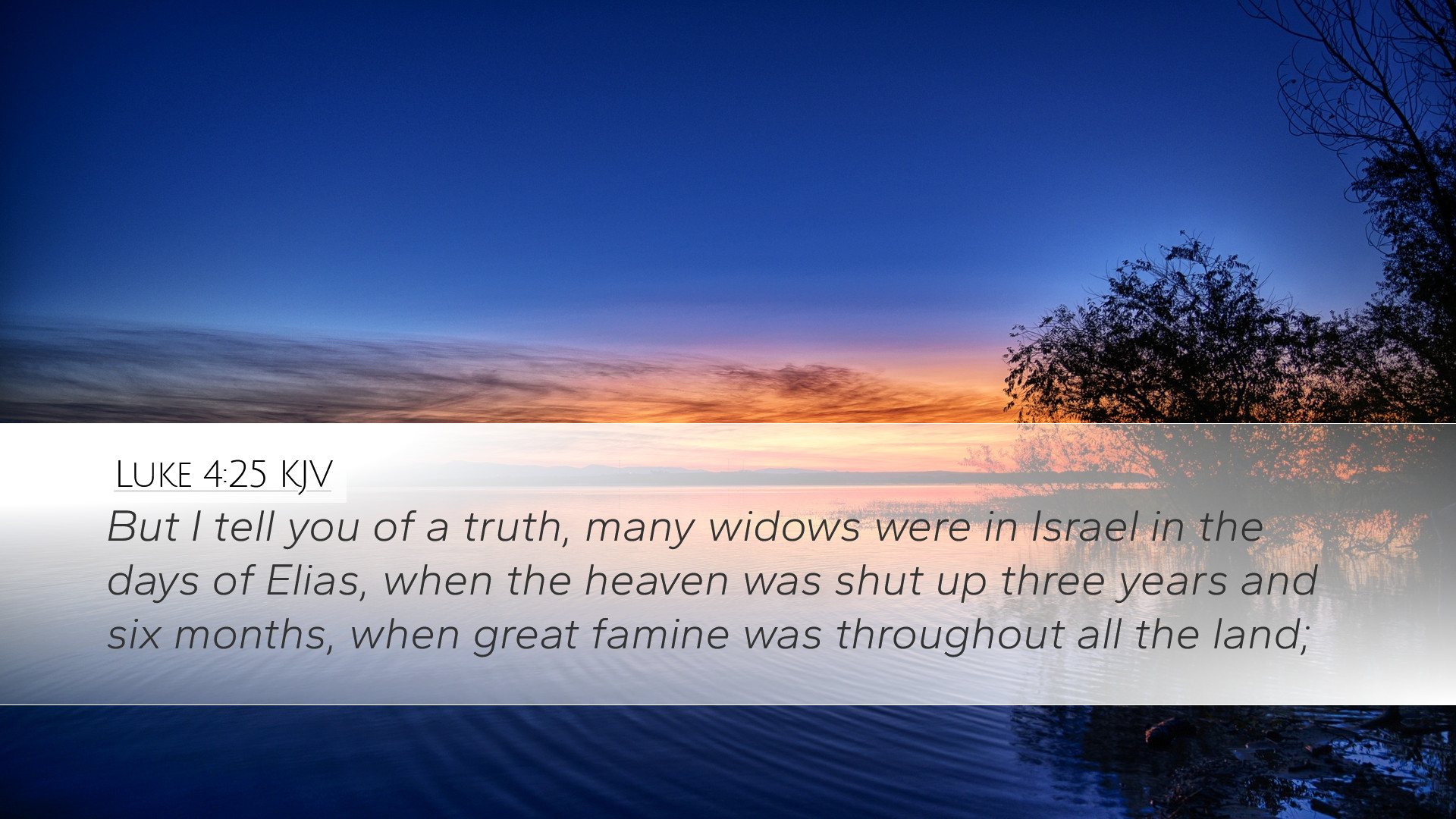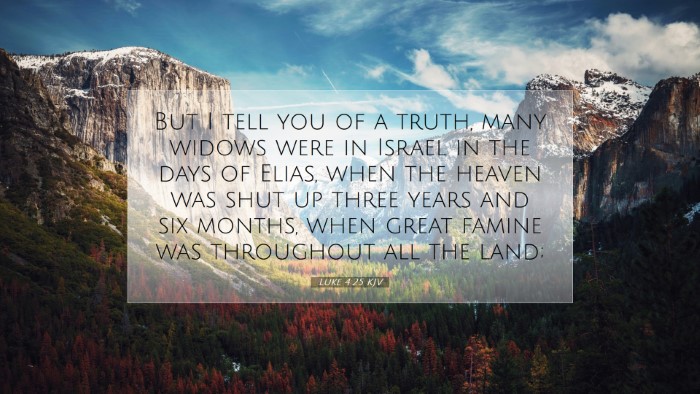Commentary on Luke 4:25
In this verse, Jesus refers to a notable historical event from the Old Testament, illustrating significant spiritual truths through the example of the prophet Elijah. The verse reads:
"But I tell you truly, there were many widows in Israel in the days of Elijah, when the heaven was shut up three years and six months, and a great famine came over all the land." (Luke 4:25)
Contextual Background
The context of this passage occurs in the early ministry of Jesus, as He teaches in the synagogue of Nazareth. The preceding verses highlight the initial acceptance of Jesus by His hometown, but He quickly shifts to a revelation that exposes their lack of faith.
Commentary Insights
Matthew Henry’s Commentary
Matthew Henry emphasizes the multifaceted significance of this verse. He notes,
"Jesus's reference to the widows in Israel demonstrates the disobedience and unbelief of the nation that was favored by God. Despite their special covenant relationship, they were not spared from famine and the judgments associated therewith. Jesus contrasts the historical narrowness of their perspective to a broader view of God’s mercy that is extended to the Gentiles."
Albert Barnes’ Notes on the Bible
Barnes draws attention to the historical context of Elijah during a time of dire judgment on Israel due to idolatry. He writes,
"Elijah was a prophet sent primarily to the nation of Israel; however, in times of need, God often turned His attention beyond the Israelites to meet the needs of the humble and faithful Gentiles. This serves as a powerful reminder that God's grace is not confined to the chosen people, but is extended to all who exhibit faith regardless of nationality."
Adam Clarke’s Commentary
Clarke provides a thorough examination of the implications of Jesus’s words. He highlights that,
"The famine lasted for three and a half years, creating an intense need in the land of Israel, yet Elijah was sent to a non-Israelite widow in Zarephath. This act underscores the fact that God’s sovereign plans often transcend human expectations and prejudices. It illustrates how God's providence operates independently of national boundaries and religious affiliations."
Theological Implications
- Judgment and Provision: The famine serves as a symbol of judgment. The refusal of Israelites to heed the messages of their prophets led to divine discipline.
- Universal Grace: God’s reaching out to the widow in Zarephath implies that faith is the key to God's mercy, which is not limited to an ethnic or religious identity.
- Acceptance and Rejection: Jesus’s acknowledgment of the Gentile widow indicates the rejection He would face in His ministry, demonstrating a larger theme of acceptance and rejection based on faith rather than mere heritage.
Practical Applications
This passage provides several practical lessons for today's believers:
- Be Open to God’s Work Beyond Borders: Just as God worked through a Gentile widow, believers must be open to recognizing God’s hand at work in unexpected places and among different peoples.
- The Call to Faithfulness: Faithfulness in the midst of trials, as exhibited by the widow, exemplifies the unity believers share in Christ—beyond cultural and national identities.
- Responding to Hard Truths: Just as the inhabitants of Nazareth initially accepted Jesus but later rejected Him, believers must be willing to accept the challenging truths God presents, even if they contrast with their own expectations.
Summary
Luke 4:25 is a critical verse that encapsulates themes of judgment, divine provision, faith, and the expansive nature of God's grace. By reflecting on the insights provided by respected commentators, pastors, students, theologians, and scholars can deepen their understanding of this passage and apply its teachings meaningfully in their ministries and studies.
As they engage with the text, may they recognize the broader narrative of Scripture that invites all people to seek God in faith and receive His grace, irrespective of their background.


